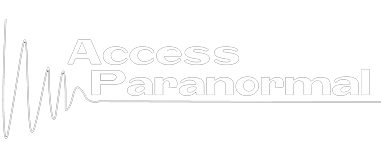Most paranormal investigators use the term “Evidence Review”, “Paranormal Evidence” or “Scientific Evidence” but in all honesty, should we? What’s the harm right? Paranormal Evidence just means you have captured something that could be paranormal. But… is the word evidence the best term to use?
Some may say I am picky, so let’s have a look why this word may not be the best description.
Firstly let’s look at the definition of the word “Evidence”.
According to the website “Wag the Dog” (https://vigornotrigor.wordpress.com/2014/07/01/data-vs-evidence/) Data is factual information such as numbers, percentages, and statistics. Evidence though is data that is relevant and furnishes proof that supports a conclusion.
Oxford dictionary states, “It’s the available body of facts or information indicating whether a belief or proposition is true or valid.”
So, in a nutshell evidence is supporting something that is true and correct.
And, this of course is where it gets somewhat messy.
Science as it stands today says there isn’t an afterlife, ghosts or spirits. Yes, this could change one day (science also declared the world was flat) but for now, this is what we have to respect and remember. Investigating claims of possible paranormal phenomena doesn’t have to be carried out by those who believe in an afterlife. In fact in some instances it’s almost preferable (for myself though, I’m open to the possibility of an afterlife). But is there any refutable evidence of it? No. Not yet anyway.
Evidence Review
Then there is after an investigation. We begin to review the recordings taken and we often term this as “Evidence Review”. This again is tricky. It indicates that we already have found proof of the afterlife – even before we have analysed any footage.
Paranormal Evidence
Well, after the last point, you can start to see more of why this term seems obsolete. As it stands, unfortunately there is no such thing as paranormal evidence.
Scientific Evidence
For something to be deemed “Scientific Evidence” it needs to be supporting or disproving a hypothesis or a scientific theory
When investigators say they are “looking” for scientific evidence, they are in fact looking for something, an anomaly, that they can’t explain and could possibly be paranormal.
Scientific evidence could be better explained by investigators as the fact we are using parts of science to help explain our environment and what is happening with our minds. But looking for scientific evidence of the paranormal may not be the best way to explain it.
For something to be considered scientific evidence it needs to be studied over time and repeatedly studied too using experiments and gathering data for research.
It also has to be conducted unbiasedly with experiments carried out in a controlled environment and peer reviewed.
So, using the word evidence may not be accurate.
Great.
So what term(s) do you use instead?
If you and your team are serious, you are gathering data to research further.
If you’re using recording equipment to monitor your environment then you are also data gathering.
If you are reviewing recordings from a paranormal investigation, then its footage analysis or video/audio recording analysis.
As paranormal investigators, we deserve the respect for the work we do but to start gaining that respect we can start using the right terms.


